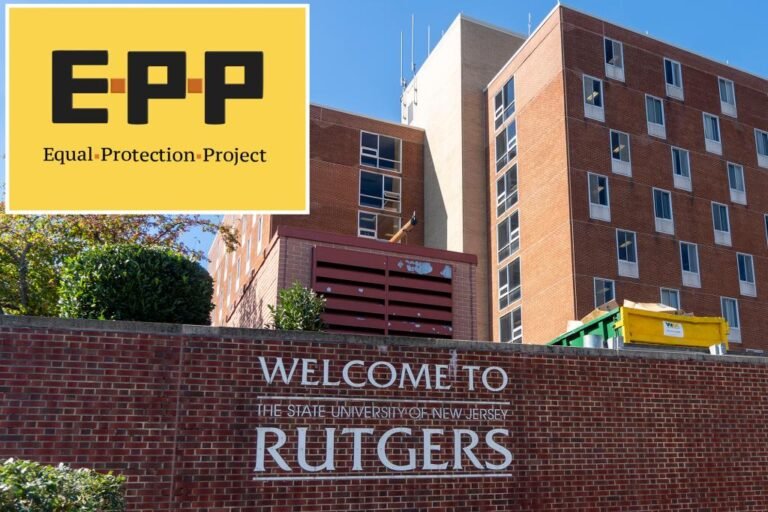A legal advocacy group has accused New Jersey’s flagship public university — Rutgers — of discrimination for excluding white students from scholarship programs that recruit African-American, Native American and Hispanic students.
The Equal Protection Project filed a civil rights complaint against Rutgers University with the US Department of Education, claiming the scholarship programs violate federal anti-discrimination laws and are unconstitutional.
“What doesn’t Rutgers understand about non-discrimination? Discrimination on the basis of race, color, or national origin is barred under federal law, state law, and even under Rutgers’ own rules. At the Equal Protection Project, we are calling on Rutgers to live up to its own set of rules — that shouldn’t be controversial,” said William Jacobson, a Cornell University law professor and founder of the Equal Protection Project.
“Where were the administrators and staff whose jobs supposedly are devoted to preventing discrimination? Why was there no intervention to uphold the legally required equal access to education?”
The group’s Aug. 1 complaint filed with the Education Department accuses four different Rutgers programs of discrimination by excluding white students, a violation of Title VI of the Civil Rights Law of 1964, as well as the 14th Amendment’s equal protection clause.
The Albert W. Dent Graduate Student Scholarship is designated for minority students enrolled in their final year of a healthcare management graduate program.
The GEM Fellowship Program provides both financial support and internship opportunities to highly qualified, underrepresented students who wish to pursue graduate study in engineering or science.
The National Action Council for Minorities in Engineering scholarships are for under-represented students identified as “African American, American Indian, or Latino and/or first generation.”
Lastly, General Motors offers an endowed scholarship at Rutgers for GM workers or their spouses and children and students of “underrepresented minorities.”
According to the complaint, Rutgers considers “minorities” to be those who “designate themselves as Black, non-Hispanic; American Indian or Alaska Native; Asian, Native Hawaiian or other Pacific Islander, or Hispanic.”
Educational institutions that receive federal funding must comply with laws against discrimination. The US Education Department monitors compliance and investigates complaints.
President Trump also issued an executive order directing federal agencies to scrap funding for diversity, equity and inclusion programs.
Rutgers, in a statement on Sunday, said it will review the complaint but indicated that it has already scrapped two of the programs.
“Rutgers University remains firmly committed to equal protections afforded under law and rejects discrimination in all its forms. The university will closely review the complaint, but based on preliminary information, two of the scholarships are not administered by the university and the remaining two are no longer being awarded,” the university said in a statement.
“As a best practice, the university continuously reviews its websites, programs, and practices to ensure compliance with federal and state law.”
The Equal Protection Project asked in the complaint that “the Department of Education’s Office for Civil Rights promptly open a formal investigation, impose such remedial relief as the law permits for the benefit of those who have been illegally excluded from Rutgers’ various scholarships based on discriminatory criteria, and ensure that all ongoing and future scholarships and programming at Rutgers comports with the Constitution and federal civil rights laws.”
The department has taken action against Columbia University and the City University of New York for allegedly failing to protect Jewish students from discrimination, leading to settlements.
The legal advocacy group has filed similar discrimination complaints or lawsuits against the New York State Education Department; State University of New York campuses including SUNY-Albany and SUNY-Buffalo Law; and Fordham University and Alfred University.
The group has challenged over 100 colleges and universities for 500 alleged discriminatory scholarships and programs.
“Unfortunately, there is a culture on many campuses that excuses racial discrimination against white students. Racial discrimination in education is wrong and unlawful, no matter who benefits or who is harmed.” Jacobson said.
The US Education Department had no immediate comment.




